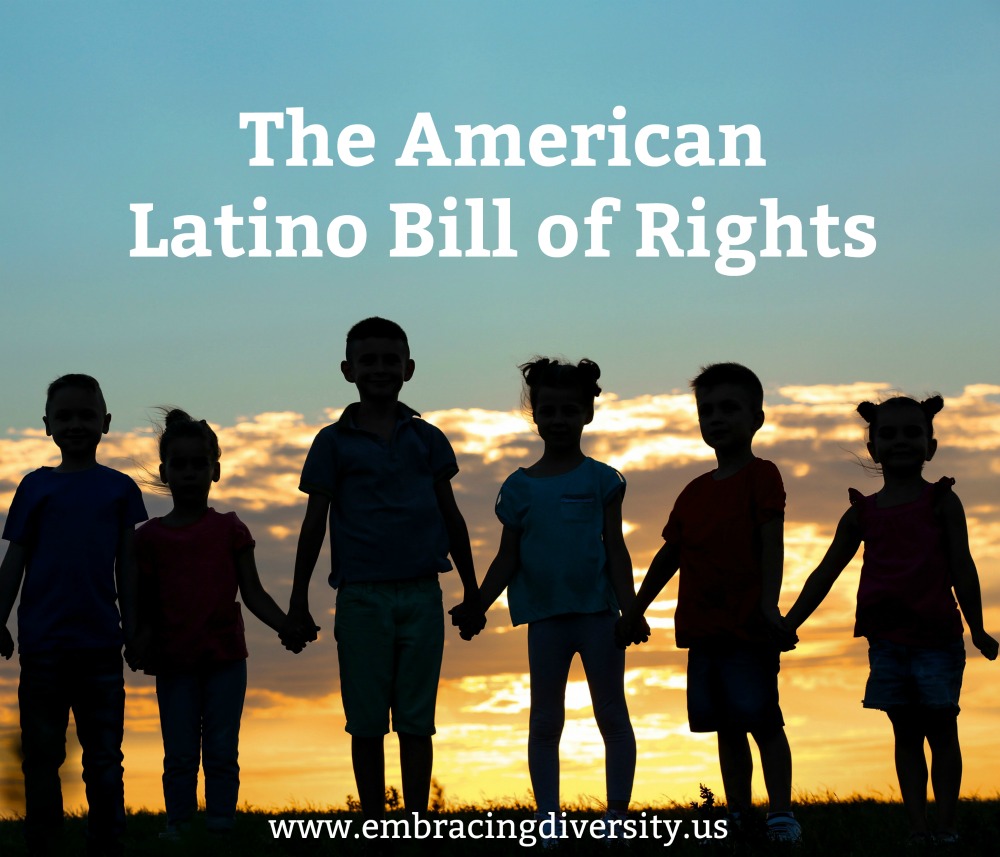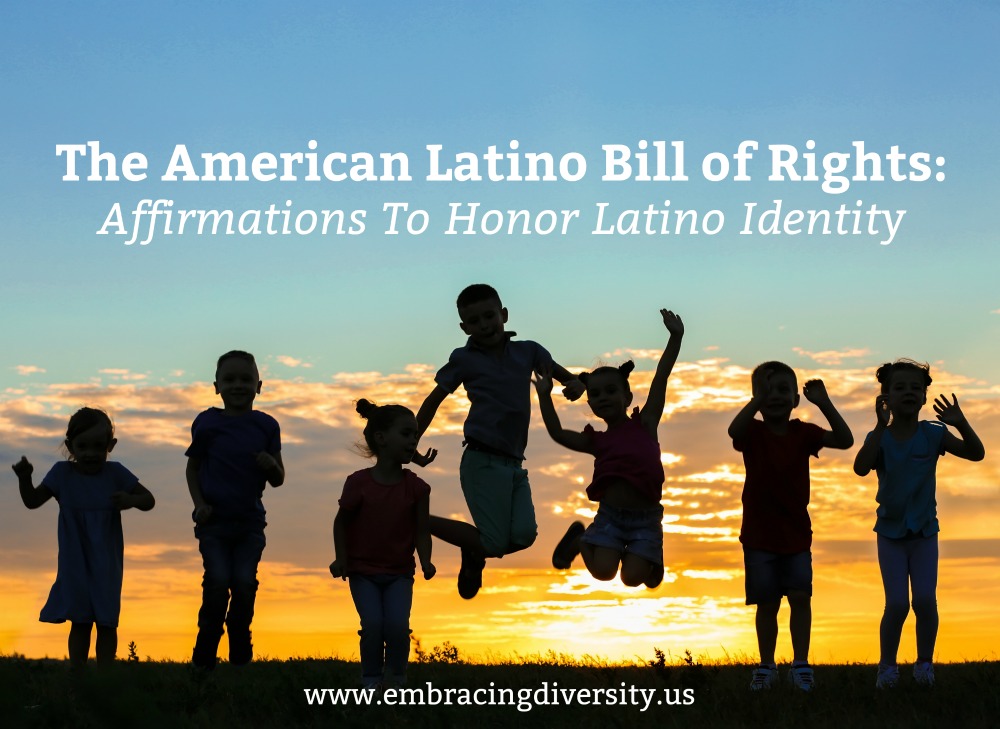If you’re American, you’re likely aware of how deeply rooted issues of racism and ethnic shaming are in this country. These challenges leave many individuals constantly having to explain—or even justify—their identities. In a society where people are often judged by their appearance, there’s little room to simply be yourself without encountering opinions or assumptions. The American Latino Bill of Rights emerged from my personal journey to understand identity and to help pave the way for my children to weave their own thread into the American fabric.

I’ve had countless conversations with people from diverse backgrounds on the topic of identity, and the perspectives are as varied as the individuals themselves. A few years ago, I came across the work of Dr. Maria P.P. Root, Ph.D., who authored the Bill of Rights for People of Mixed Heritage and the Multiracial Oath of Social Responsibility. Her affirmations, especially those that validate the existence of individuals labeled as “ethnically ambiguous,” deeply resonated with me.
Since reading her work, I’ve been inspired to create The American Latino Bill of Rights—a framework to affirm the feelings and thoughts many of us have when our identities are questioned. In today’s climate, it’s more important than ever to speak up, assert our right to take pride in our ancestry, and embrace our differences while claiming our place in society. Dr. Root’s insights provided me with empowering truths that also reflect the experiences of many American Latinos.
I chose to write The American Latino Bill of Rights to address issues that are specific to Latinos—challenges that may not fully align with the experiences of other people with mixed heritage. As a Black Latina woman from the Dominican Republic, I am intimately familiar with what mixed heritage and mixed ethnicity look like. However, these topics were not part of my conversations until I moved to the United States.
In American history, the Bill of Rights—the first ten amendments to the U.S. Constitution—guarantees citizens certain freedoms. Similarly, Dr. Root’s work declares certain rights for people of mixed heritage that are often challenged by societal norms. While her affirmations were profoundly impactful for me, they also highlighted the unique challenges faced by Latinos in the United States.
What better time than Hispanic Heritage Month to publish The American Latino Bill of Rights—a declaration affirming the rights and pride that our multicultural and multiethnic realities bestow upon us?
The American Latino Bill of Rights: 10 Positive Affirmations To Honor My Children’s Identity
When Dr. Root created her document, she affirmed the identities of people of mixed heritage and, in doing so, granted them permission not to conform to societal norms. For me, writing The American Latino Bill of Rights is about offering my children—and all American Latino children—positive affirmations to honor who they are and how they choose to identify.

In these challenging times, it is also a way for us as adults to assert our right to feel comfortable in our own skin and to be unapologetically ourselves. Dr. Root’s Bill of Rights for People of Mixed Heritage has helped me embrace my identity as a Dominican American with its many layers. More importantly, it has equipped me with the tools to affirm and model a positive, multicultural, and multiethnic identity for my growing children.
The American Latino Bill of Rights
I HAVE THE RIGHT…
- To be monolingual, bilingual, or fluent in Spanglish.
- To speak Spanish in public spaces without fear of attack or vilification.
- To speak out when any of the groups I belong to discriminate against one another.
- To assert my identity as I experience it—not as others perceive it through the lens of social constructs.
- To know that I am enough: Latino enough and American enough, regardless of my place of birth or language proficiency.
I HAVE THE RIGHT…
- To take up space, speak my mind, and be unapologetically myself.
- To know that I belong wherever my skills, talents, and achievements take me.
- To declare that no human being is illegal and that families belong together.
- To be recognized as a whole individual: fully American and fully Latino—there is no “half.”
- To enjoy public spaces with friends and family without fear of bullying or attacks.
Leave a Reply